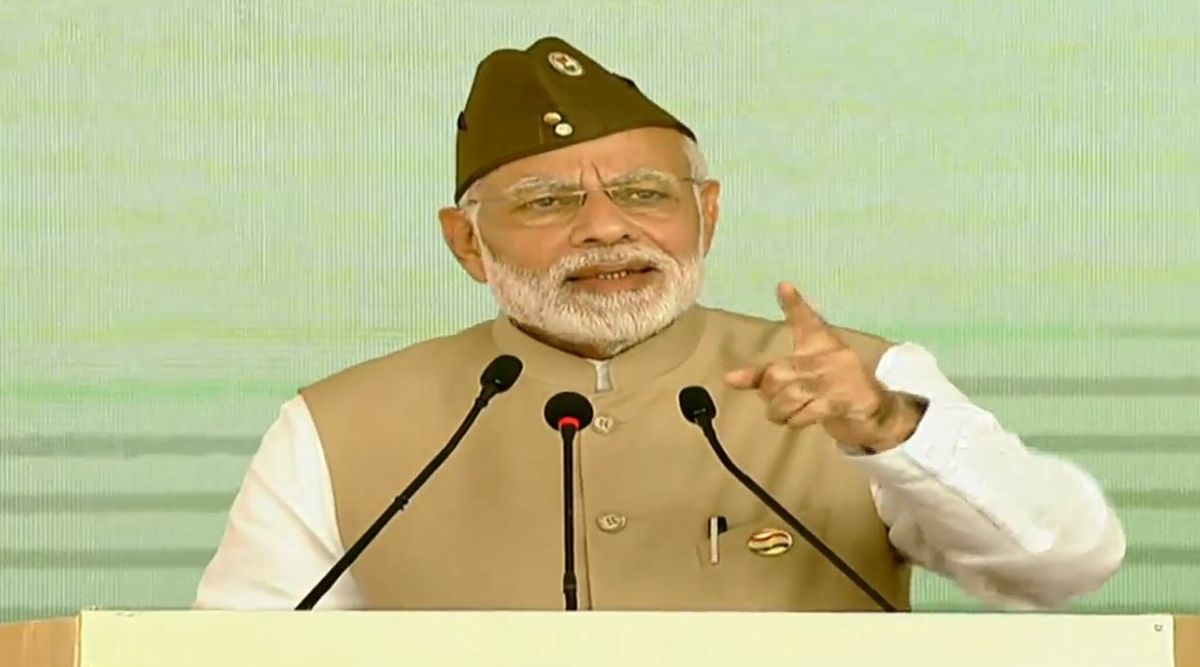PM proposes introduction of cooperative courses in educational
He also suggested focusing on export markets and developing a soil testing model through cooperatives to improve agricultural practices.
Traditionally, the Prime Minister hoists the national flag at the Red Fort on Independence Day, and in a first he did so on Sunday because soldiers of the Indian National Army faced trails by the British at Red Fort.

Photo: Twitter (@BJP4India)
In a lengthy speech invoking valour and recalling the contribution of the Azad Hind Fauj (Indian National Army) in the freedom movement, Prime Minister Narendra Modi said on Sunday that his government was committed to taking “big and bold” decisions and that the Indian Army was being modernised as per the dreams of Netaji Subhash Chandra Bose.
PM Modi was speaking at Red Fort, where in a departure from protocol, he hoisted the national flag to mark the commemoration of the 75 years of the establishment of the Azad Hind Sarkar, the government of “free India”.
Advertisement
The Azad Hind government was raised by Bose during the freedom movement.
Advertisement
Traditionally, the Prime Minister hoists the national flag at the Red Fort on Independence Day, and in a first he did so on Sunday because soldiers of the Indian National Army faced trails by the British at Red Fort.
PM Modi also laid the foundation stone of a museum dedicated to the Azad Hind Fauj at the Red Fort.
PM Modi said that “even 75 years after Independence, Netaji’s dreams have not been fulfilled”.
“India has marched several steps ahead but it is still yet to reach new heights. To achieve this goal, we are going ahead with the vision of a new India, a new India which was imagined by Bose, at a time when destructive forces were attacking us,” the Prime Minister said during his speech at the Police Commemoration Day.
“It is the duty of every Indian to be inspired by Netaji, to fight such forces, to defeat them, and to contribute to nation building in their full capacity.”
He also blamed the previous governments for looking at the country with an “English perspective”.
Recalling Bose’s words, PM Modi said, “With the power of weapons and sacrifice of blood, you have to achieve freedom and then when the country will be free, you will have to make a steady army for the nation, whose work will be to protect our freedom”.
“Today I can say that India is moving towards the creation of an Army that was visioned by Netaji. Josh, Junoon aur Jazba, these have been parts of our Army for long but now technique and modern weapons and equipments are also being combined with them.
“The strength of our Army has always been for self protection, and it will remain so in the future too,” he maintained.
On the occasion of 75th anniversary of Netaji Subhash Chandra Bose’s declaration of the formation of India’s first independent government — the Azad Hind Government on October 21, 1943, Prime Minister Narendra Modi announced that a national award in the name of Netaji will be given every year to police personnel who do excellent work in rescue and relief operations during any kind of disaster.
“From this year onwards, we will give an award in the name of Netaji Subhash Chandra Bose to police personnel who do exemplary work while rescuing and providing relief to people during the time of any disaster,” the prime minister said on Sunday in his address after dedicating to the nation a police memorial and museum.
PM Modi said the award will be announced on January 23, Netaji’s birthday.
The Prime Minister said the country cannot forget the services rendered by the National Disaster Response Force and State Disaster Response Force personnel in rescue and relief works during the time of any disaster.
“These NDRF and SDRF personnel are our brave policemen. They are from police forces. The country will not forget their bravery, dedication and sacrifice. Many people even do not know who they are, when they rescue people and provide relief during the collapse of a building, when there is a fire or when there is a train accident,” he said in a voice choked with emotions.
The NDRF and SDRF are constituted with personnel from the central paramilitary forces and state police organisations respectively.
(With inputs from agencies)
Advertisement